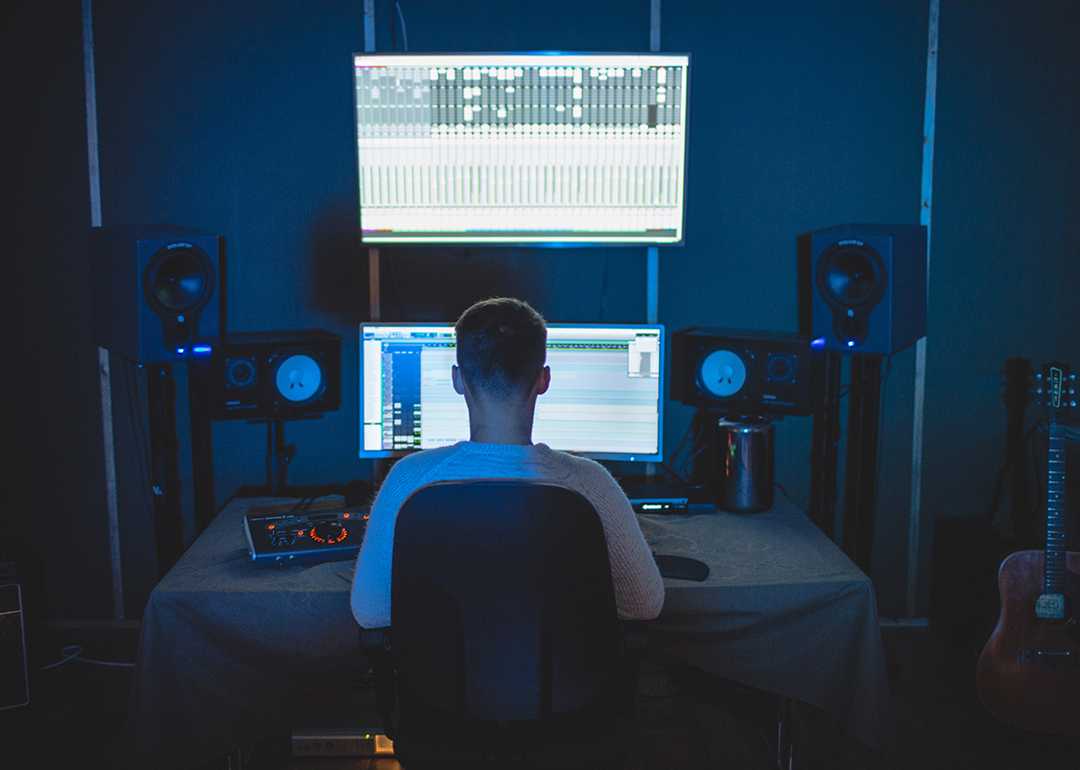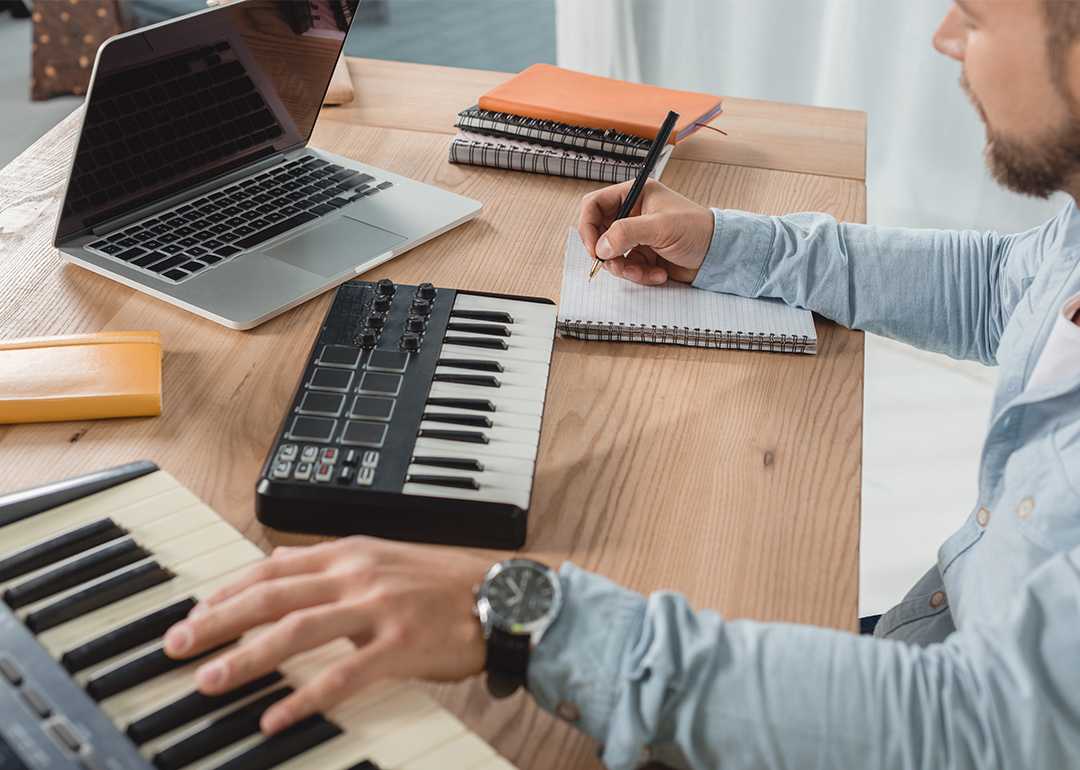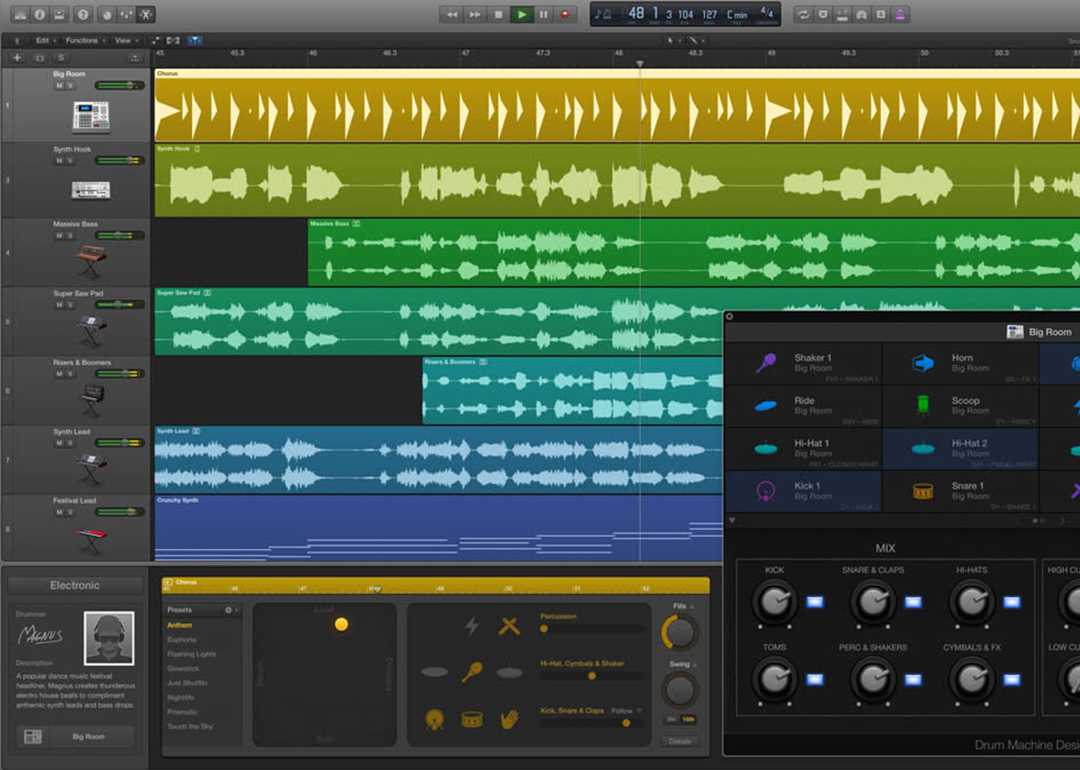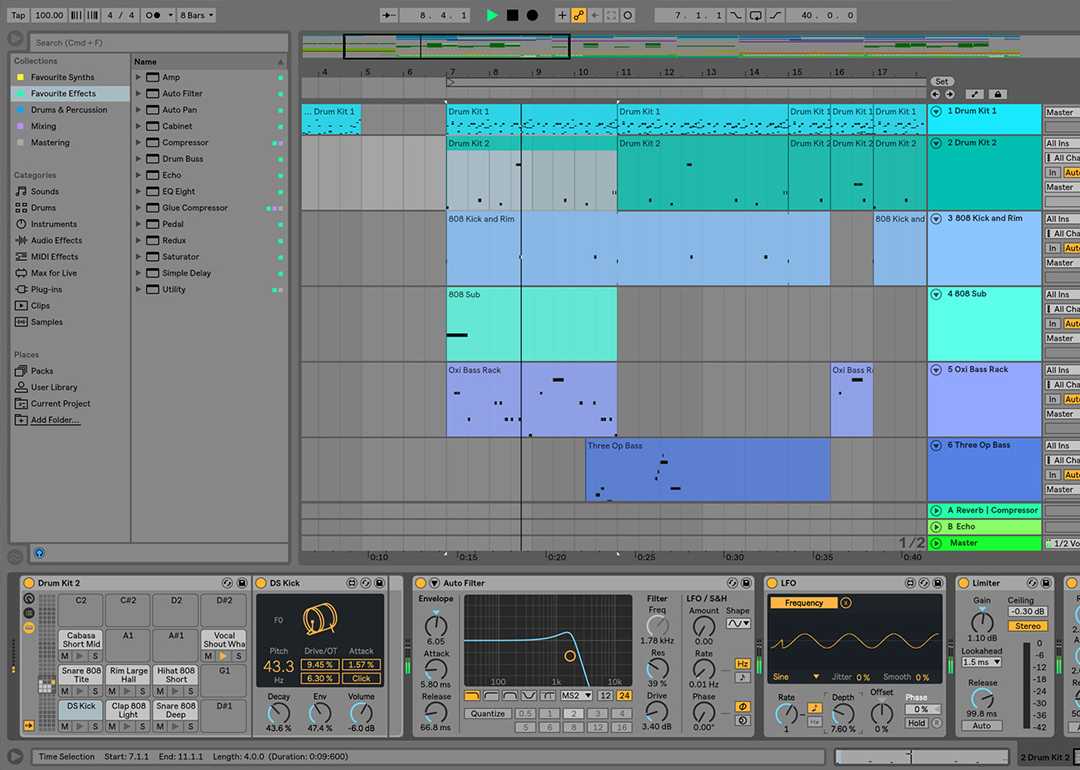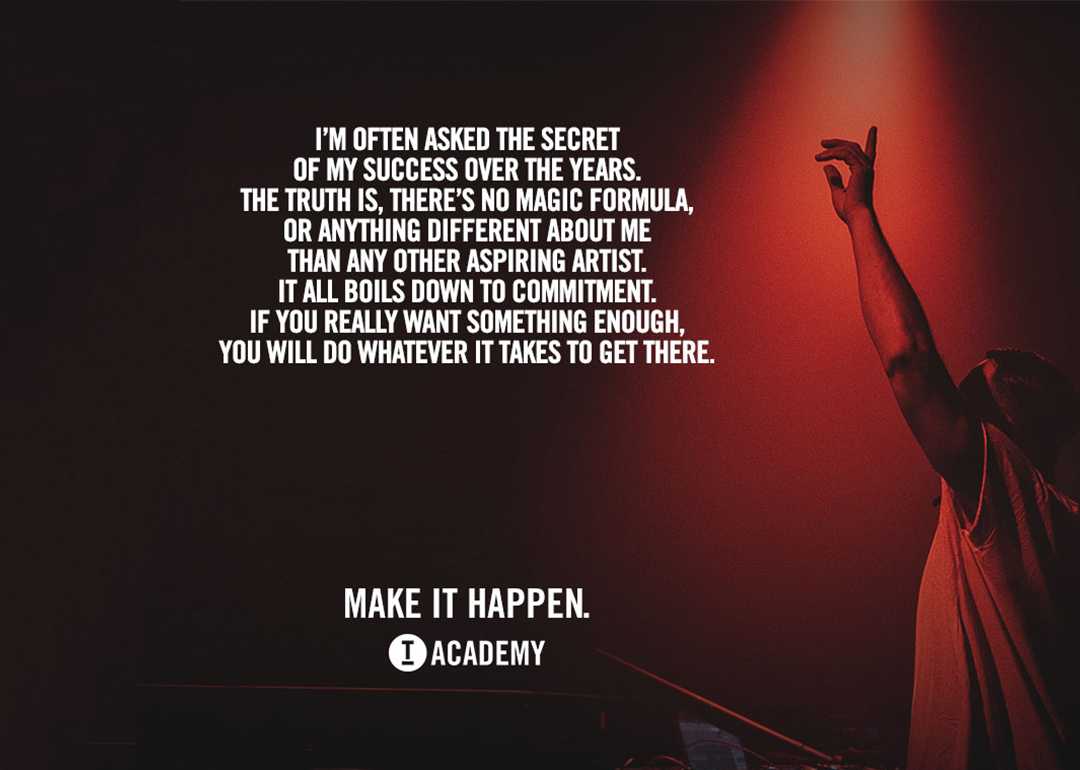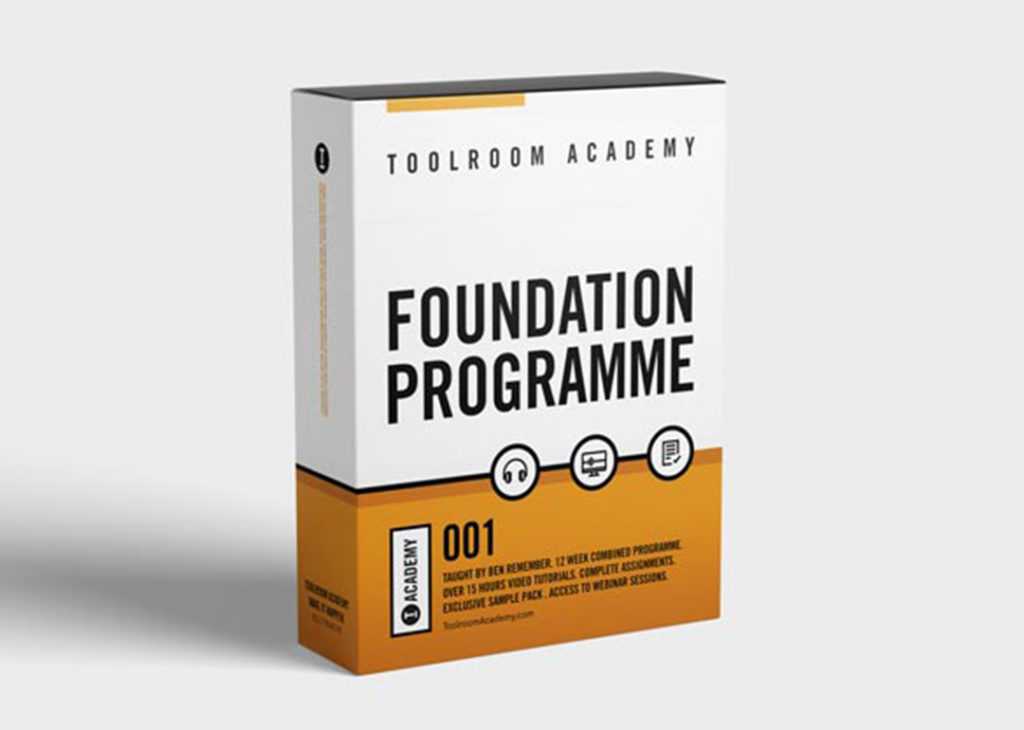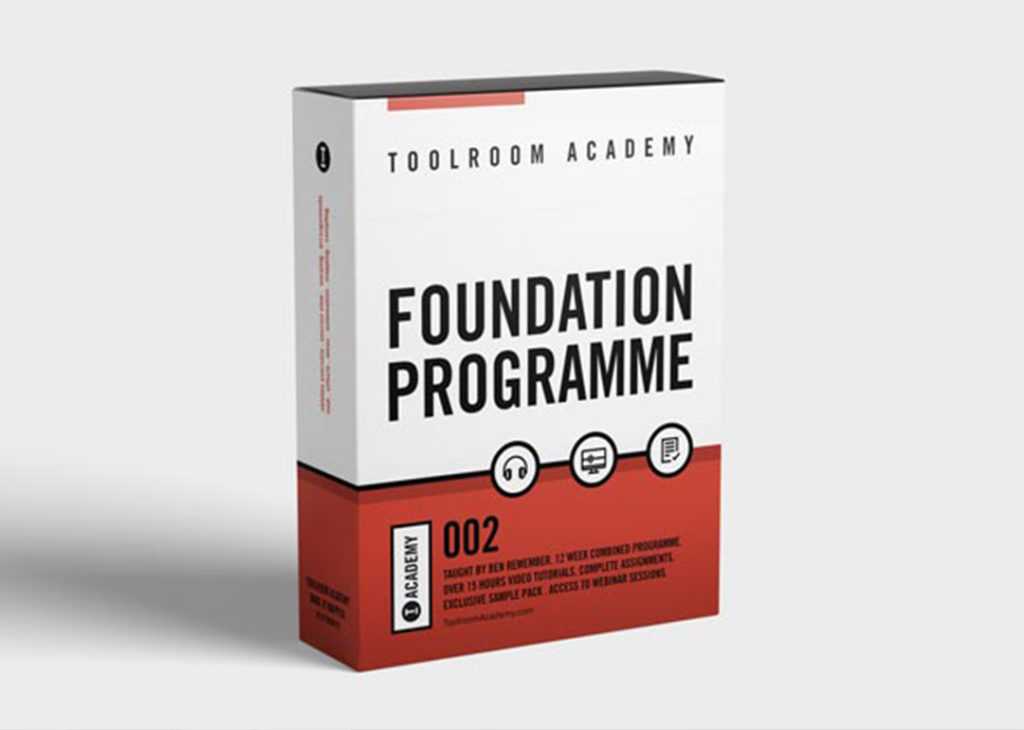And, it goes without saying that all DAWs are not created equal. While certain pieces of software may be great for some, they may not suit the needs of someone who needs to learn the basics. Today, we’re discussing the best DAW for beginners. Let’s get started!
A DAW, or digital audio workstation, is simply the software that you make music in. That’s it. Not so complicated, huh?
In other words, your DAW is where you compose, produce, record, edit and mix both audio and MIDI. Similar to using a program like Photoshop, producers can look at multiple “layers” of sound from a variety of sources. Producers can them manipulate them to their heart’s content, creating the records we all know and love. But, it certainly wasn’t always this way. It was only in the early 1990s that the first DAWs became popular for music producers to use. Prior to this, producers had to own countless pieces of hardware and mixing equipment to even write a basic track.
Of course, a simple studio would easily run into the thousands. As a result, far fewer people were making music than today. This explains why there are more producers than ever in 2020, making it that much more important to stand out from the pack.
We still adore the feeling of an analogue synth. But, it goes without saying that 99% of artists are now using a DAW to make music instead of relying on hardware alone. In short, if you’re going to be making music in 2020, you’ll be in need of a DAW. And, there are two that currently dominate the market today.
Unless you’ve been living under a rock, there are two pieces of software that the majority of producers are using. These are: Apple’s Logic Pro and Ableton Live. Generally speaking, both DAWs are remarkably similar in terms of their overall capabilities. Both pieces of software serve as all in one suite in which you can write, record, mix and master your tracks.
While it’s not a perfect analogy, choosing between Logic and Ableton is like picking between Pepsi and Coca Cola. And, one’s decision about which DAW they will use is largely going to boil down to personal preference. Some producers, such as Toolroom’s youngest recruit Wheats, have chosen to go off the map entirely and use software like FL Studio. In fact, even fan favorite Solardo uses the cult-classic piece of software known as Cubase. We know, we know. Everybody knows somebody who’s writing bangers in some obscure piece of software that nobody’s ever heard of.
And that’s great.
But, further you get in your production career, the more you will want to collaborate with others, watch tutorials, and even read books about your DAW. And, it’s currently Logic and Ableton that are currently dominating the market. The majority of both Toolroom artists and House music’s superstars are using one of these two.
You’d be wise to do the same.
In many ways, choosing a piece of software outside of the Logic or Ableton bubble can often be compared to DJ’ing with a controller instead of the standard club setup of Pioneer CDJs. It can absolutely be done, and in many cases, it can be done amazingly well. The big issue here is that it presents unnecessary complication when working with other artists. Just like how setting up Traktor or Serato in the middle of a busy club night can be a royal pain, attempting to do a collab with another producer when you’re using a different DAW can be annoying, to say the least.
Remember: electronic music is a community. Everything you can do to better integrate yourself into that community is going to benefit your career as an artist. This includes everything from living in a city where Electronic music is thriving, to choosing a DAW that other producers are also using. That being said, just because both Logic and Ableton are fine choices do not mean that both are well suited for beginners.
In fact, there’s a clear winner between the two when it comes to choosing the best DAW for beginners.
When you’re starting off in your production career, you would be wise to keep things as simple as possible. Look, unless you’re someone who is naturally gifted beyond belief, learning to produce music most likely won’t come easy for you. And that’s okay!
It is for that reason that we tell producers that you MUST master the basics before releasing any music. And, you want a DAW that you can immediately start to understand, and one that won’t bog you down with unnecessary details from the start. When you’re making music, it pays to be quick, brutally efficient, and occasionally a bit dirty! Nothing will ruin a creative jam session faster than getting lost in a piece of software. This makes choosing the best DAW for beginners all that much more important!
And, that’s why there’s one piece of software we suggest most new producers start off in.
Ableton Live is absolutely the DAW for beginners. Bar none.
That’s not to knock Logic, either. Mark Knight himself is a big fan of using Logic. But, even he admits that Ableton is a far more user-friendly experience for new producers.
“For me, the ideas always start in Ableton. It’s far more intuitive and you can see if an idea is going to work far quicker than in Logic, that said I prefer to arrange a mix in Logic so I combine them both.”
Plus, it goes without saying that Ableton comes preloaded with a seriously powerful set of plugins. Though there are certainly Tech House VSTs we can’t live without, it’s entirely possible to make a solid record with no outside software whatsoever. So, there you have it. If you’re a new producer, we wholeheartedly suggest you pick up a copy of Ableton. If you feel the need to branch out once you’ve established a base skillset, dabbling in Logic is never a bad idea. Perhaps this is why recent Toolroom signees Maxinne, JacQ, Husko and FiBi have all used Ableton to write their debut releases on the label.
But, in our experience, we’ve noticed that even the most proficient of Ableton users will often struggle to wrap their heads around the user interface in Logic. If you truly fall in love with the softare (many have), we even offer a course on how to master the ins and outs of this complex DAW.
While there may be some truth to the idea that Logic may have specific advantages when it comes to mixing and mastering, the most important thing for any new producer to worry about is simply putting pen to paper, and getting started producing music. Even still, there is a fair argument to be had in regards to Logic having a better sound engine than Ableton. And there are certainly a fair few people who actually prefer Logic’s layout to that of Ableton (though they are certainly in the minority). All in all, we’re big fans of Ableton for your first DAW. While some may argue that Logic has a more powerful set of plugins and is a more powerful DAW over all, we find Ableton’s user-friendliness to be its strongest factor. That, plus an array of intuitive, creative tools make it perhaps the easiest DAW to pick up and immediately start producing with.
And that, my friends, is truly priceless. Beyond choosing the right DAW to get started with, we have a few tips on how to get started producing music as well.
There’s no denying the fact that your first day in Ableton can be intimidating. Between learning the differences between audio and MIDI channels, understanding signal flow, organizing your sessions, and even choosing the right sounds, it can be a lot to take in all at once. In fact, we’ve watched countless would-be producers stare at their computer screens like a deer in the headlights when first getting into music-making.
Even though Ableton is the more simplistic of today’s popular DAWs, there’s an absolutely massive learning curve that can take years to properly get over. The truth is, most producers struggle to even make a basic beat in the first 12 months of producing. This mostly comes down to spending hundreds of hours learning how to work Ableton by trial and error.
But, luckily for you, this doesn’t have to be the case in your production journey anymore.
Imagine having a no-nonsense, straight to the point guide that teaches you how to make today’s House, Tech House and Techno. Sounds pretty nice, doesn’t it? Until very recently, this was totally unimaginable. Sure, there are loads of tutorials online, all of which will claim to show you the “right” way to make music.
But sadly, almost none of them are suited to our genre. That’s right. Hardly even one of them will steer you in the right direction. That’s not just strange, but it’s downright upsetting! Toolroom has been in the business of making music, throwing events, and releasing sample packs for over 15 years. It wasn’t until we realized that there was currently no other product on the market that shows you how to make credible electronic music that we were inspired to release our methods of mentoring artists to the public.
And, lucky for you, that’s exactly what we’ve decided to do.
As such, Toolroom Academy is proud to announce that we’ve managed to distil our 15 years of experience into the Toolroom Academy Foundation Programme. The Foundation Programme was created to be the video course that every producer of House, Tech House, and Techno should have had on day one. Make no mistake, this isn’t a course where you learn about unnecessarily complex tasks like sound engineering. This is a results oriented course where you are taught the skills that you need to make it in today’s music scene from the ground up.
No experience? No problem. We’ve crafted this course for absolute beginners. Better yet, this course also doubles up as a way of helping producers whose production know-how needs a catch-up. The truth is, the biggest thing holding most producers back is a failure to master the basics. While Part 1 addresses the skills producers will use for a lifetime, Part 2 is where the magic happens. Toolroom Artist Ben Remember shows you precisely how he writes, arranges, and mixes a track to the Toolroom standard. Best of all, you’ll have access to the exact sounds Ben uses in his sessions. Leave the sample hunting to us. We want you to worry only about writing your best work.
Packed with 7 hours of video content, assignments that take place over a 6 week period, and even access to a monthly Q+A with Ben himself, there is perhaps no better way to kick off your production journey than with the Foundation Programme. So, what are you waiting for? Understanding the best DAW for beginners is only half the battle.
Click here to learn more about the Toolroom Academy Foundation Programme.
